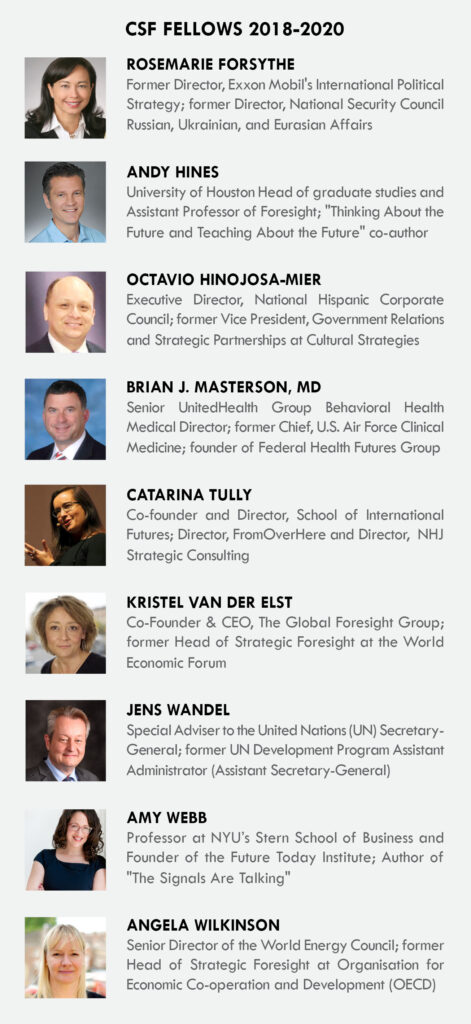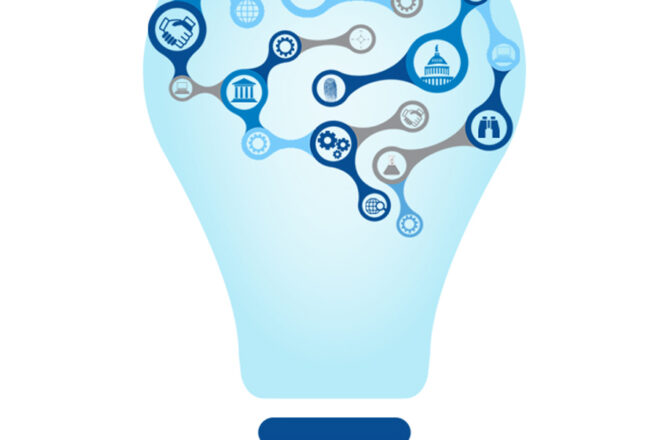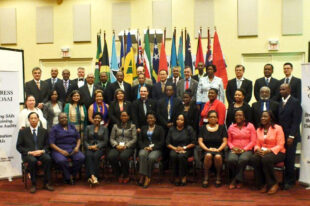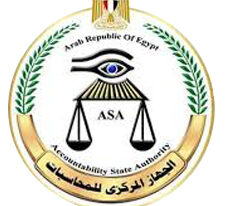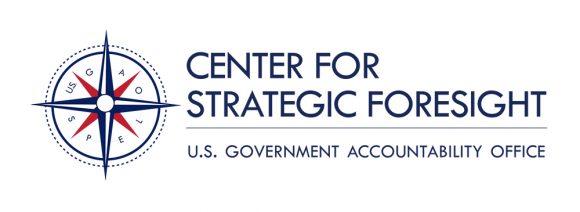
“Supported by the leadership and vision of the U.S. Comptroller General, Gene L. Dodaro, we are committed to strategic foresight as an important management tool, as well as a mechanism to guide us as we plan our future work,” noted James-Christian Blockwood, Managing Director of the U.S. Government Accountability Office (GAO) Strategic Planning and External Liaison (SPEL) office.
To achieve positive, long-term outcomes, Blockwood believes creatively and critically thinking about emerging trends and future challenges and collaborating with experts are necessary efforts—efforts facilitated through the Center for Strategic Foresight (CSF).
The CSF, which Blockwood helped establish and will oversee, aims to enhance GAO’s ability to identify, monitor and analyze emerging issues and their implications to agency operations and work performed for Congress.
“The CSF’s focus on strategic foresight reflects the full scope of GAO’s oversight mission across the federal enterprise, the agency’s mission to support Congress and its core values of independent, non-partisan analysis,” Blockwood said.
Consisting of strategic foresight experts (Fellows) from around the world, the CSF held its first meeting in January to discuss the evolving nature of identity and other trends with the potential to significantly impact the nation—as individuals, organizations and governments.
Long gone are the days where dates of birth, fingerprints or social security numbers are the sole means to identify individuals. Today, our faces, our voices, even the way we drive and browse the internet can be used to quickly identify us.
Dodaro, who opened the inaugural meeting, pointed out that cybersecurity has been on GAO’s High Risk List since 1997 and stressed, “Protecting privacy and sensitive data is one of the four major challenges GAO has identified related to cybersecurity.”
Dodaro also underscored the importance of GAO foresight activities, particularly in planning efforts where CSF experts complement current GAO advisory entities and organizational initiatives.
CSF Fellows noted several opportunities and challenges when it comes to identity and its evolution. Worldwide, credible digital identity systems help assure access to essential government services; however, potential risks to privacy and civil liberties lurk, particularly in cases involving a few large players with unprecedented access to data who operate in an environment where government policy does not keep pace.
What if the public sector was more involved?
Jens Wandel, CSF Fellow and Special Adviser to the United Nations Secretary-General, believes, “If citizens see the public sector regulating and using data for good purposes, then citizens will be more likely to accept it, but if they see data being abused or excessive risk exists, then there will be problems.”
“Governments must use data correctly to enhance benefits and value. This is a global problem, not just a first-world problem,” he added.
CSF goals and activities are designed to be impactful and inspirational.
“We are confronting deep global uncertainties across a myriad of sectors, and there has never been a more urgent need for strategic guidance at the highest levels of government,” remarked Amy Webb, a futurist, author and professor at New York University’s Stern School of Business.
She added, “It is my civic duty, and my honor, to serve as an inaugural Fellow in the Center for Strategic Foresight.”
A strictly nonpartisan organization, the CSF is uniquely positioned to act as a central hub for research, data-driven models and strategic assessment. The CSF’s nine Fellows represent a diverse set of global experience providing expertise in foresight, planning and futures studies from government, private sector, non-governmental, academia and international organizations.
Stephen Sanford, CSF Director and GAO’s Strategic Planning and Innovation Manager, said the CSF Fellows “count among the world’s top experts in strategic foresight, and we are very pleased to have them support an effort that is an important pillar to the broader foresight ecosystem we’ve been building at GAO.”
The CSF was established in 2017, and the Fellows were selected in 2018. They will serve a two-year, renewable term.
